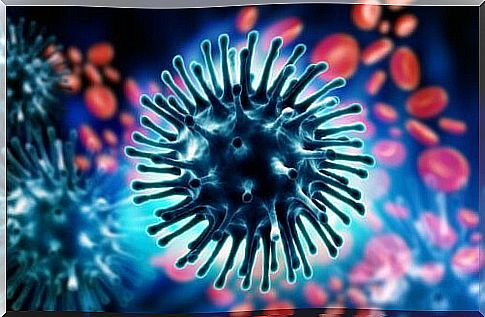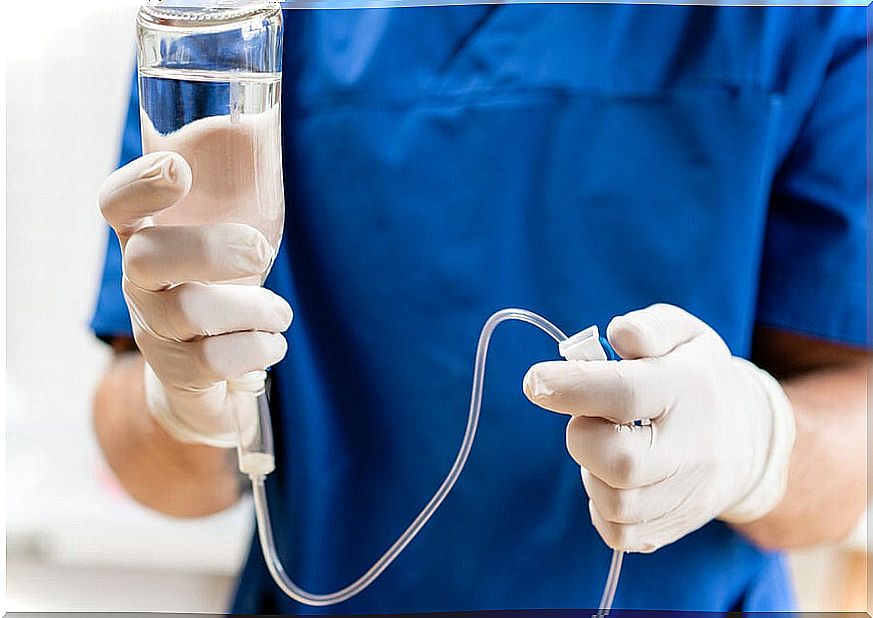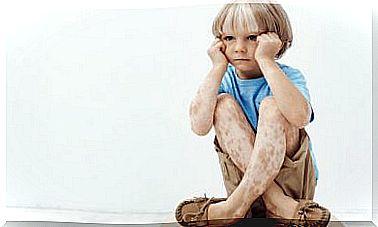The Skin Of Two Chinese Doctors Darkens Due To Coronavirus
Chinese doctors Yi Fan and Hu Weifeng woke up from their coma, generating controversy regarding the question of whether the skin darkens due to coronavirus. After having suffered very serious forms of the disease, these health professionals from Wuhan, the city where the COVID-19 outbreak that is today a pandemic began, changed their complexions.
The news quickly went viral, as it was the government-dependent Chinese television channel that released the images. The same shows how the darkened skin of these doctors appeared after suffering from coronavirus.
So far there were no records of this new symptom, neither in seriously ill patients nor in the general population. Even the dermatotropism of SARS-CoV-2, that is, its affinity for skin cells, was almost ruled out.
The doctors in question were diagnosed with the pathology on January 18 of this year, and after its worsening, they needed to be admitted to intensive care. Yi Fan needed 39 days of life support to survive, while Hu Weifeng completed almost 100 days of hospitalization.
The dermatological symptoms of coronavirus
Officially, in the diagnostic protocols of COVID-19, the suspicion is established with the three basic symptoms: fever, cough and decay. Sometimes testing can be done in people with an epidemiological link who have loss of smell as the only sign.
Symptoms on the skin do not refer to the disease. Certain medical statements rejected the existence of a skin infection from the coronavirus.
However, the skin that darkens due to coronavirus that occurred in China once again brought up a statement from an Italian doctor who described skin symptoms in 20% of the patients he treated. Among them, he reported that there was an erythematous rash, urticaria and vesicles.
Based on the Italian report, in some places it was considered necessary to improve barrier protections to ensure that there is no direct transmission. Although transmission of COVID-19 is by respiratory droplets, there could be a skin reaction that is triggered by skin-to-skin contact.

The skin darkens due to coronavirus due to chloroquine
One of the drugs used to treat SARS-CoV-2 is chloroquine – and hydroxychloroquine. Both are antiparasitics that have already been used with relative success in malaria.
In addition to their anti-infective power, they are drugs with anti-inflammatory potential, which made them the first choice in various countries. France, for example, had a long discussion about the development of a protocol for its use. And in the world, the World Health Organization is developing multicenter research that includes it.
The problem with chloroquine is the number of adverse effects that come with it. It can cause a severe headache, diarrhea and vomiting, as well as a skin rash. In addition, reports of hyperpigmentation of the skin due to chloroquine were recalled once again, when noticing the black skin of these doctors with coronavirus.
If the drug was used in the protocol that was applied during their hospitalizations, it is possible that there lies the explanation for the change in complexion. However, it may not have been just one drug, but a combination of several that affected liver function.
Liver and skin problems darkening by coronavirus

When several drugs are used at the same time, as may have happened in the treatment of Chinese doctors, the liver tends to suffer. Most drugs have to be metabolized in the liver, but the liver has a daily work limit.
Ribavirin and interferons, which are also being tested as therapeutic alternatives for COVID-19, are phototoxic and have liver side effects. They could explain the fact that the skin darkens in coronavirus patients with long hospital stays.
Scientific studies in patients with hepatitis C, treated with ribavirin and interferon, reported hyperpigmentation of the oral mucosa in more than 20% of those treated. If Chinese doctors were put on both drugs, they could have their skin darkened by them.
Skin darkening by coronavirus is not a new symptom
We must emphasize that skin darkened by coronavirus cannot be considered a new symptom of the disease. If we take the context, we will see that these are two patients with long hospital stays, and possibly with an arsenal of drugs infused to treat them.
What does alert is the possibility of drug interactions that occur in people with coronavirus who go through intensive therapy. Chinese doctors will regain their usual complexion color over time, but it remains to be determined how much liver damage they will have as sequels.









